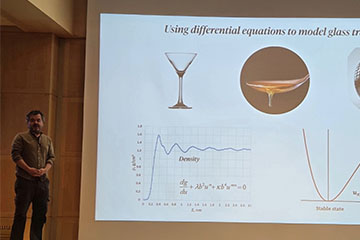New program designed to build degrees with AI in mind
Program to help a broad range of majors include new technology
A new degree program will allow a wide range of Central Michigan University students to build a degree with artificial intelligence in mind.
The applied artificial intelligence minor was designed to give anyone who sees AI in their future a chance to start their career with a firm understanding of it, said Jesse Eickholt, a faculty member in the computer science department.
That includes students who aren’t computer or data science majors, he said. Any student pursuing a Bachelor of Arts, Bachelor of Applied Arts, Bachelor of Science or a Bachelor of Science in Business Administration can add the applied AI minor.
“This creates exciting pathways enabling students to consider how they might combine this minor with other disciplines,” he said.
AI is advancing rapidly and access to software to build applications is expanding quickly, which has opened up the ability to create customized AI applications, he said. It also sparked the idea for the new program.
“The idea for the minor came from a recognition that as AI becomes more embedded in the tools we use, there needs to be more understanding of how AI in these applications work and what their potential limitations and points of failures are,” he said. “This understanding should not just be limited to software developers but to everyone using AI.
“That is why the minor was designed with more than just the computer science or data science major in mind.”
Skills that the program will provide will help students build artificial intelligence into software applications and evaluate how well it works, he said. Those skills include thinking like a computer, programming and understanding AI.
The program includes electives in large language models, the ability of AI to interpret images – and communicating with AI using through relatable text. Large language models include online assistants like ChatGPT, Gemini and Microsoft Copilot.
It will be available starting in the Fall 2025 semester.




